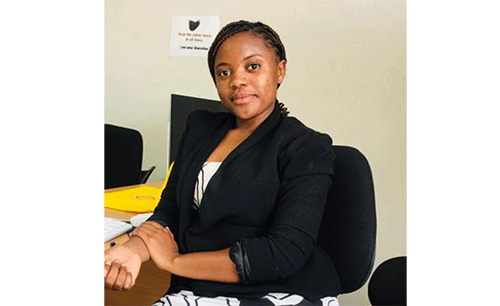The Students’ Union of Namibia (SUN) has called on the Namibian government to allocate money for free menstrual items in all public schools and universities.
Many learners and students across Namibia continue to face education disruptions due to a lack of access to menstrual hygiene products.
A few years ago, Popular Democratic Movement president McHenry Venaani tabled a motion in the National Assembly about the provision of feminine hygiene products to needy school girls.
In an interview with Nampa, SUN’s national executive for gender and social welfare, Frieda Iimene, questioned why Namibian girls are still expected to rely on donations or fundraisers for sanitary pads, while condoms are free and publicly available in almost every institution.
Iimene stated that while both serve essential health needs, menstruation is not a choice and said it is high time menstrual health is prioritised with the same urgency and resources.
She said education is a constitutional right in Namibia, and issues like period poverty greatly undermine that right. Immune said the union condemns the continued existence of period poverty in Namibia, noting the sad reality that some young girls still experience in 2025.
“The union calls on the Namibian government to allocate budgetary provisions for free menstrual products in all public schools and universities,” Iimene appealed.
She also suggested the integration of menstrual health education into the Life Skills curriculum and the provision of training to teachers and staff to handle menstrual health issues with sensitivity and confidentiality.
She continued by commending the recent Lil-Lets donation to the One Economy Foundation, citing it as a powerful example.
“To individuals, corporations, and civil society organisations: your support is needed now more than ever. We urge all sectors, private companies, NGOs, faith-based groups, and citizens to view this issue not as charity, but as a call to action for equity and empowerment,” Iimene implored different stakeholders.
She justified that such collaborations can establish a lasting change in many Namibian students.
As a way to break the stigma around the issue of menstrual health, the union proposed that student leaders and school administrators take the lead in normalising conversations around menstruation. -Nampa
Photo: contributed



